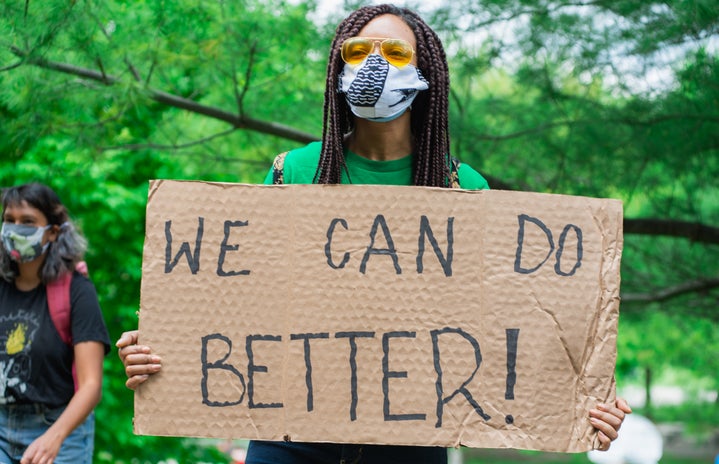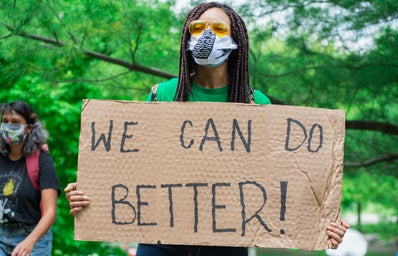How H&M’s sustainability initiative is not all it claims to be.
University students are some of the most ethically aware individuals currently, with warnings to avoid the largest negatively impacting fast fashion brands, such as shein.com, plastered all over social media and their damaging practices becoming common knowledge. So, to a broke university student trying their best to find an affordable winter coat or clubbing outfit, H&M’s sustainability campaign might offer a glimmer of hope. This is what they don’t tell you.
‘Greenwashing’ is a relatively new concept within marketing. It involves the presentation of a company as more environmentally conscious and accountable than they really are. It is an incredibly deceptive tactic meant to trick consumers into thinking they are making an eco-friendly choice, yet the only thing benefitting is the corporation’s profit margin, certainly not our planet.
‘We share the growing sense of urgency with many around the world who recognise the fashion industry needs to move faster towards circularity and continue to work to develop a fairer, more transparent and traceable supply chain.’ This is a quote from Leyla Ertur, Head of Sustainability at H&M Group. At first glance, H&M may seem like a promising company to support from an environmentally ethical standpoint; they hide behind a Sustainability Report (which a lot of similar brands don’t bother with), they allow you to donate your old clothes, not to mention they release new clothes in their ‘Conscious’ collection regularly. So, what is it about these practices that is deceptive?
The root of the problem lies in the fact that H&M is a fast fashion brand; a business model that at its very core can never be sustainable. These companies release poor quality new clothes every week rather than summer and winter collections, producing an estimated three billion garments per year. As if that wasn’t bad enough, because of their poor quality these clothes are not intended to last long at all, often being thrown away after a couple of uses. Unless these entire business models change, it is misleading to label themselves as sustainable in any way.
Does H&M’s ‘Conscious’ collection at least offer some positivity? Surely mass-producing sustainable clothes isn’t negatively impacting the planet directly? If only H&M weren’t being deceptive in what quantifies as ‘sustainable’. The Synthetics Anonymous Report, published in 2021, exposes disappointing greenwashing practices by many fashion brands, and found that to qualify for H&M’s ‘Conscious’ collection, products ‘must contain at least 50% sustainable materials’’. However, little further information is given as to what qualifies as a ‘sustainable material’. H&M passes the clothes on to its partner I:Collect, who have admitted that ‘only 35% of the clothes are recycled at all.’
In fact, the Synthetics Anonymous Report found that H&M were the worst offenders of all brands studied, with 96% false claims in their advertising and reports.
A quick Google search will reveal many articles documenting exactly how H&M conduct their practices. I particularly recommend this article – Is H&M sustainable? What you need to know about H&M Conscious (coolerfuture.com). If you want to know what your particular favourite fashion brand measures up, have a read of the Synthetics Anonymous Report – but be prepared to lose faith in most fashion brands. Don’t blame yourself if this brand or others fooled you. They purposefully employ professionals to advertise themselves in a way that will make you support them, and unfortunately will twist the truth as far as it will go without outright lying. The responsibility towards a sustainable future lies first and foremost with the corporation before the consumer. However, the fact that being sustainable is seen as trendy and profitable is promising for actual change; we are demanding better.
Further reading:
How Ethical or Sustainable is Fast Fashion Brand H&M? (eco-stylist.com)
Is H&M sustainable? What you need to know about H&M Conscious (coolerfuture.com)

